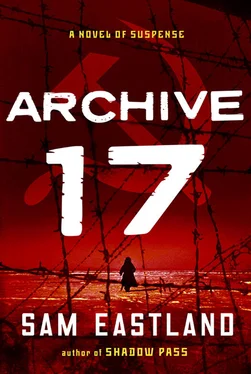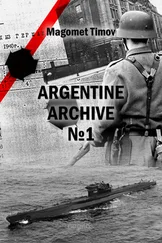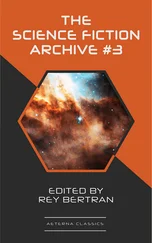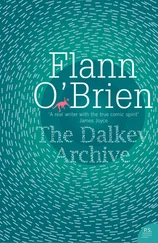Sam Eastland - Archive 17
Здесь есть возможность читать онлайн «Sam Eastland - Archive 17» весь текст электронной книги совершенно бесплатно (целиком полную версию без сокращений). В некоторых случаях можно слушать аудио, скачать через торрент в формате fb2 и присутствует краткое содержание. Жанр: Исторический детектив, на английском языке. Описание произведения, (предисловие) а так же отзывы посетителей доступны на портале библиотеки ЛибКат.
- Название:Archive 17
- Автор:
- Жанр:
- Год:неизвестен
- ISBN:нет данных
- Рейтинг книги:3 / 5. Голосов: 1
-
Избранное:Добавить в избранное
- Отзывы:
-
Ваша оценка:
- 60
- 1
- 2
- 3
- 4
- 5
Archive 17: краткое содержание, описание и аннотация
Предлагаем к чтению аннотацию, описание, краткое содержание или предисловие (зависит от того, что написал сам автор книги «Archive 17»). Если вы не нашли необходимую информацию о книге — напишите в комментариях, мы постараемся отыскать её.
Archive 17 — читать онлайн бесплатно полную книгу (весь текст) целиком
Ниже представлен текст книги, разбитый по страницам. Система сохранения места последней прочитанной страницы, позволяет с удобством читать онлайн бесплатно книгу «Archive 17», без необходимости каждый раз заново искать на чём Вы остановились. Поставьте закладку, и сможете в любой момент перейти на страницу, на которой закончили чтение.
Интервал:
Закладка:
Across the road from Kirov’s office stood a tall, peach-colored building which was the home of the Minister for Public Works, Antonin Tuzinkewitz, a thick-necked man as jowly as a walrus and responsible for, among other things, the filling in of Moscow’s potholes. This minister was best known not for his public works, but for the facts that he rarely got out of bed before noon and that the primordial roar of his laughter as he returned in the early hours of the morning from the Bar Radzikov could be heard more than a block away.
Colonel Kubanka’s daily commute to the Ministry of Armaments should not have taken him past Tuzinkewitz’s home, but Kubanka made a wide detour to ensure that it did.
The noise, as the front and rear wheels of Kubanka’s Mercedes collided with the pothole, was like a double blast of cannon fire. It actually shook the loose panes of glass in Kirov’s window. No one could sleep through that, especially not a man like Tuzinkewitz, who still suffered from flashbacks of the war, in which he had been repeatedly shelled by Austrian artillery in the Carpathian Mountains. Tuzinkewitz, rudely jolted from his dreams, would rush to the window, fling back the curtains and glare down into the street, hoping to spot the source of this noise. By then, Kubanka’s car had already turned the corner and disappeared and Tuzinkewitz found himself staring down helplessly at the pothole, which returned his stare with a cruel, unblinking gaze.
It was driving Tuzinkewitz mad, slowly but with gathering speed, exactly as Kubanka intended. Kirov saw the proof of this each day in the strain on Tuzinkewitz’s meaty face as it loomed into view out of the stuffy darkness of his bedroom.
When this daily ritual had been completed, Kirov turned and smiled towards Pekkala’s desk, but the smile froze on his face when he saw the empty seat. He kept forgetting that Pekkala was gone. Even stranger than this, he sometimes swore he could feel the presence of the inspector in the room.
Although Major Kirov had been raised in a world in which ghosts were not allowed to exist, he understood what it felt like to be haunted, as he was now, by the absence of Inspector Pekkala.
Far to the east the freezing, clanking wagons of ETAP-1889 crossed the Ural Mountains and officially entered Siberian territory. From then on, the train stopped once a day to allow the prisoners out.
Before the wagons were opened, the guards would walk along the sides and beat the doors with rifle butts, in hopes of dislodging any corpses that had frozen to the inner walls.
Piling out of the wagons, the prisoners inevitably found themselves on windswept, barren ground, far from any town. Sometimes they stayed out for hours, sometimes for only a few minutes. The intervals did not appear to follow any logic. They never knew how long they would be off the train.
During these breaks, the guards made no attempt to keep track of the prisoners. For anyone who fled into this wilderness, the chances of survival were nonexistent. The guards did not even bother to take roll calls when the train whistle sounded for the prisoners to board. By then, most convicts were already huddled by the wagons, shivering and waiting to climb in.
Beside Pekkala stood a round-faced man named Savushkin, who kept trying to make conversation. He had patient, intelligent eyes hidden behind glasses that were looped around his ears with bits of string. He was not a tall man, which put him at a disadvantage when trying to move around the cramped space of the wagon. To remedy this, he would raise his hands above his head, press his palms together, and drive himself like a wedge through the tangled thicket of limbs.
Confronted with Pekkala’s stubborn silence, Savushkin had set himself the task of luring Pekkala into conversation. With the faith of an angler tying one kind of bait after another to his line, Savushkin broached every topic that entered his head, trusting that the fish must bite eventually.
Sometimes Pekkala pretended not to hear. Other times, he smiled and looked away. He knew how important it was for his identity to remain secret. The less he said, the better.
Savushkin did not take offense at his companion’s silence. After each attempt, he would wait a while before trying again to find some chink in Pekkala’s armor.
When Pekkala finally spoke, a bright, clear day had warmed the wagons, melting ice which usually jammed the cracks between the walls. While the wheels clanked lazily over the spacers, their sound like a monstrous sharpening of knives, Savushkin hooked his fish at last.
“Do you want to hear the joke that got me fifteen years in prison?” asked Savushkin.
“A joke?” Pekkala was startled at the sound of his own voice after so many days of silence. “You were sent here because of a joke?”
“That’s right,” said Savushkin.
“Well,” said Pekkala, “it seems to me you’ve earned the right to tell it twice.”
The others were listening, too. It grew quiet in the wagon as they strained to hear Savushkin’s voice.
“Stalin is meeting with a delegation of workers from the Ukraine,” he continued. “After they leave, the Boss notices that his fake mustache is missing.”
“Are you saying that Stalin has a fake mustache?” asked a man standing beside him.
“Now that you mention it,” another voice chimed in.
Savushkin ignored this.
“You can’t tell jokes about Stalin!” someone called from the far end of the wagon. “Not in here!”
“Are you kidding?” shouted Savushkin. “This is the only place where I can tell a joke about him!” He paused and cleared his throat before continuing. “Stalin calls in his chief of security. ‘Go and find the delegation!’ says the Boss. ‘One of the workers has stolen my mustache.’ The chief of security rushes out to do as he is told. A while later, Stalin realizes he has been sitting on his fake mustache, so he calls back his chief of security and tells him, ‘Never mind. I found my mustache.’ ‘It’s too late, Comrade Stalin,’ says the chief. ‘Half the workers have already signed confessions that they stole it and the other half committed suicide during interrogation.’ ”
For a moment after Savushkin had finished telling the joke, there was silence in the wagon.
Savushkin looked around, amazed. “Oh, come on. That’s a good joke! If it was a bad one, they would only have given me ten years!”
At that, the men began to laugh. The sound multiplied, echoing off the wooden boards as if the ghosts of those who had been dumped beside the tracks were laughing now as well.
Turning to look through the barbed wire opening, Pekkala caught sight of a farmer sitting on a stone wall at the edge of a field only a few paces from the tracks. The old man was wearing a sheepskin vest and knee-length felt boots called valenki . A horse and cart had been tied to a tree beside the wall, and the back of the cart was filled with turnips scabbed with clumps of frozen earth. The farmer had laid out a red handkerchief on the snow-topped wall and was sitting on the handkerchief. This gesture, in spite of its uselessness in fending off the damp and cold, struck Pekkala as strangely dignified. In one hand, the man held a small jackknife and in the other hand he held a piece of cheese. He was chewing away contentedly, eyes narrowed in the rush of wind as railcars clattered past, filling the air with a glittering veil of ice crystals.
As the farmer heard the laughter of the convicts, his eyes grew wide with astonishment. In that moment he had realized that the cargo rattling past him was human and not livestock, as was painted on the cars, just as the prisoner transport vehicles in Moscow were disguised as delivery vans, complete with advertisements for nonexistent brands of beer.
Читать дальшеИнтервал:
Закладка:
Похожие книги на «Archive 17»
Представляем Вашему вниманию похожие книги на «Archive 17» списком для выбора. Мы отобрали схожую по названию и смыслу литературу в надежде предоставить читателям больше вариантов отыскать новые, интересные, ещё непрочитанные произведения.
Обсуждение, отзывы о книге «Archive 17» и просто собственные мнения читателей. Оставьте ваши комментарии, напишите, что Вы думаете о произведении, его смысле или главных героях. Укажите что конкретно понравилось, а что нет, и почему Вы так считаете.











